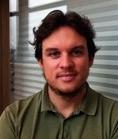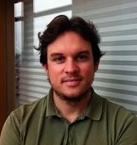
IES, Institut d'Electronique et des Systèmes
CNRS UMR 5214 / Université Montpellier
860 rue de Saint Priest, Bâtiment 5
34097 Montpellier, France
DR CNRS, Head of NanoChemLab team
Epitaxial α-Quartz on Silicon: A Soft-Chemistry Assisted Platform for Integrated Oxide Devices
Abstract
The integration of epitaxial functional metal oxides on silicon represents a major strategic direction for advanced microelectronics and integrated photonics, combining the maturity of silicon technologies with the advanced functionalities of oxides. Despite challenges related to structural and chemical incompatibilities, this work demonstrates that progress in interface engineering and mastery of growth processes, particularly through soft chemistry, positions this approach as a promising technology for next-generation hybrid devices. We especially highlight epitaxial quartz on silicon as an innovative solution that circumvents the constraints and costs associated with vacuum-based techniques [1,2]. The ability of quartz to act as a buffer layer promotes the integration and coherent growth of other functional oxides such as ZnO [3], paving the way for high-performance electromechanical, optical, and biocompatible devices compatible with industrial fabrication. This technology promises greener, more modular microelectronics.
[1] A. Carretero-Genevrier et al. Science. Vol 340. Pp 827-831 (2013)
[2] R. Rathar et al. Advanced Functional Materials. 2025, DOI: 10.1002/adfm.202514484
[3] D. Sanchez-Fuentes et al. ACS Appl. Mater. Interfaces. 2025, Accepted Manuscript
Short Bio/CV
Adrian Carretero Genevrier is a CNRS Director Researcher at the Montpellier Institute of Electronics (IES). He earned his PhD in Materials Science from the Universitat Autònoma de Barcelona in 2010 and spent three years as a postdoctoral researcher at the Collège de France in Paris. He leads the NanoChemLab team (www.nanochemlab.com), known for its expertise in the chemical growth of functional nano-oxides for innovative device design across various fields, including biology, microelectronics and catalysis. He has received several awards, including the ERC Proof of Concept Grant (2022), the Starting Grant (2019), the ANR Young Researcher Award (2016), and the Outstanding Award for his PhD (2012). He is a co-inventor of six US patents and has published over 60 articles in high-impact journals, including Science and Nature Communications.



